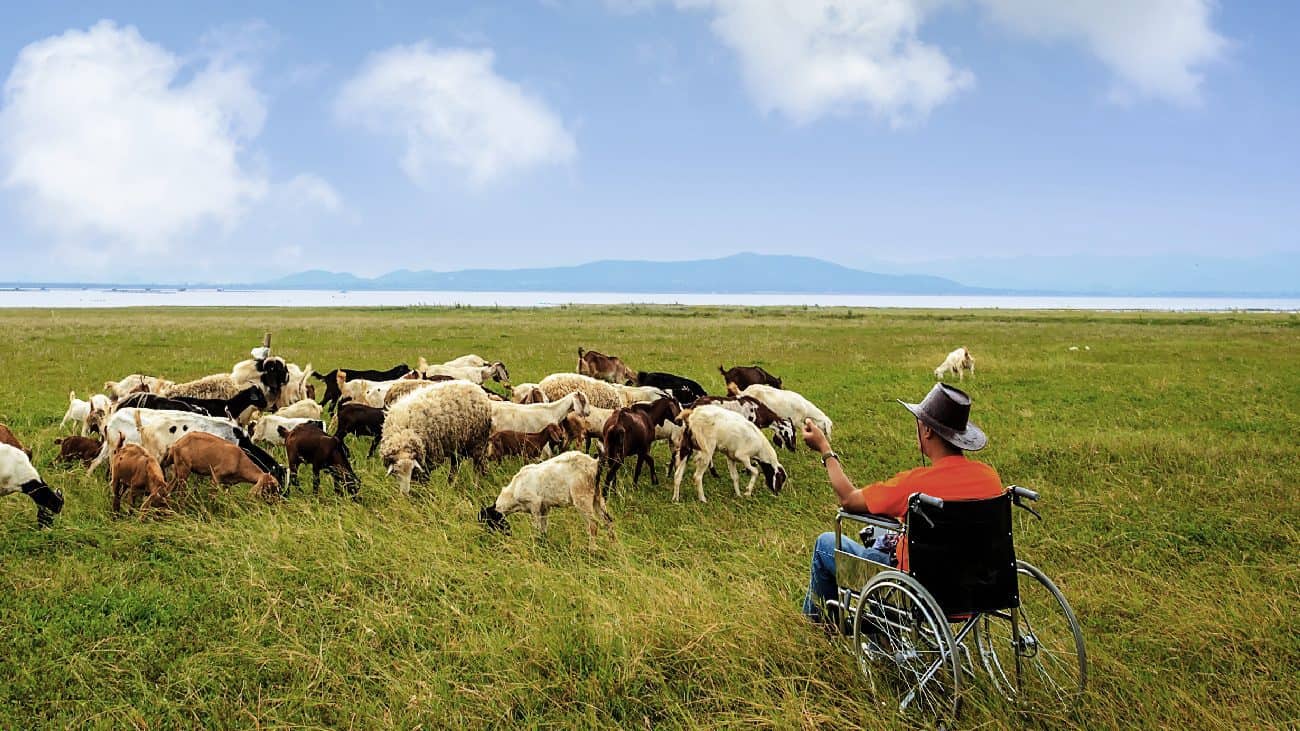A Guide to Determining Accessibility at Vocational and Technical High Schools
On my first day at Bristol County Agricultural High School, I found out that I’d learn to take apart an engine and put it back together, climb trees, wade through the pond, ride horses, work with cows and livestock, arrange flowers, and weld basic metal objects. I had a lot of questions, but my main one was: Is this going to be accessible to me? Can I actually do all this? What happens if I can’t?
Conversations around accessibility and accommodations are commonplace when discussing traditional high schools, but attending a vocational, technical, or agricultural high school adds an extra layer of challenges. Instead of just worrying about IEPs, ramps, and American Sign Language interpreters in the classroom, you might be worrying about how to ask for accommodations if you can’t stand outside in ten degree weather to change a horse’s ice bucket or if you’re afraid the loud noises in the mechanics building might trigger a seizure.
Talk to school administrators, faculty, and staff early on
Get in touch with the school as early as you can. Ask for any and all information they have about your access needs and their process for accommodation requests. There are legal protections that cover you and grant you a right to accommodations and access, including the Americans with Disabilities Act (ADA), Individuals with Disabilities Education Act (IDEA), and Section 504 of the Rehabilitation Act of 1973. Depending on your school, you may need to submit requests in writing and fill out paperwork. The more information you have about what will be expected of you, particularly in your vocational classes, the more prepared you’ll be to make decisions about when to ask for accommodations and what to ask for.
Ask for syllabi and detailed lesson plans in advance
If your teachers can provide it, looking at syllabi and lesson plans before they come up in real time can be especially handy. You might be worried about one aspect of a vocational course but otherwise unconcerned about the class requirements, and knowing the week-by-week plans will help you plan for the days those lessons will be taught.
When you’re working with your school to receive accommodations, make sure they find solutions that will still allow you to participate as fully as possible in the lesson. If, for example, you’ll be grooming dogs but the grooming tables are too high, ask for a lower table so you can reach the dogs.
Speak to other disabled students
No one will know about accessibility at your school like a current or former disabled student. Even if you don’t share the same disability, they’re likely to have an understanding of administrative processes, how slow change at the school tends to be, and what the general attitude is surrounding disability and accommodations. They might also know workarounds you haven’t thought of, like bringing a space heater out to the barn with you while you’re shoveling horse manure in the winter.
Find an ally or a mentor you can trust
It can take a little time to develop this relationship and find someone you’re comfortable with, but it’s a good idea to have an ally or a mentor who’s on your side and willing to offer support and advice as needed. This person might be a guidance counselor, a paraprofessional, a teacher, a coach, a librarian, or anyone else affiliated with the school. It should be someone you trust to keep your confidences and who might be willing to stand by you if you need to push back on a teacher or the administration about access needs.
I was really nervous before I started four years of agricultural high school. With a physical disability and autism, I was honestly not sure if I’d be able to do everything required of me, especially in the first year when we had to rotate through all seven of the possible majors to test out our interest in each. Would I be able to hoist myself up a tree, or use a chainsaw properly? Could I physically move a young calf if she was stubborn and refusing to get into her pen (the answer to that question ended up being no, I needed help from another student)? Would I have difficulty driving the golf cart around the school’s expansive campus?
Vocational and technical careers—and schools—can and need to be accessible and inclusive to students with disabilities. Despite my fears, I was determined not to let my concerns stop me from learning more about careers in animal science, marine biology, and natural resource conservation to decide if I wanted to pursue them after graduation. We need more disabled people in all vocational and technical fields, and it’s your school’s responsibility to make sure the environment and lessons are accessible to you, so you can make an informed decision about your career and future.
About Rooted In Rights
Rooted in Rights exists to amplify the perspectives of the disability community. Blog posts and storyteller videos that we publish and content we re-share on social media do not necessarily reflect the opinions or values of Rooted in Rights nor indicate an endorsement of a program or service by Rooted in Rights. We respect and aim to reflect the diversity of opinions and experiences of the disability community. Rooted in Rights seeks to highlight discussions, not direct them. Learn more about Rooted In Rights



